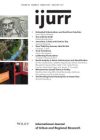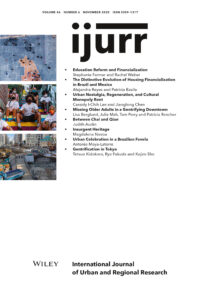Bridging critical heritage studies with insurgent planning theory, this article proposes the notion of ‘insurgent heritage’ to discuss heritage preservation’s role in constructing urban citizenship in Latin America. Critical heritage scholars have pointed to the European dominant heritage discourse deployed worldwide that excludes subordinated voices in the production of heritage. The research has also illuminated alternative understandings of preservation that sit outside of or opposed to the state and the cultural elites’ concept of what should or should not be preserved. My use of insurgent heritage adds another layer of nuance to this body of work. It promotes a pluriversal perspective by building on Southern urbanisms, Latin American social collective action, and feminist scholarship. Inspired by ethnographic work with heritage grassroots organizations in Chile, this line of argument shows that communities’ local knowledge pushes against the practice of heritage preservation and planning by only sanctioned experts. Instead, by transgressing false dichotomies of informal and formal arenas of politics, insurgent heritage proposes multiple perspectives to envision alternative futures. It reframes grassroots heritage as a sociocultural process mediated by the interplay of memory-work and the specifics of place as an ethical form of place-based care that highlights the cultural dimension of citizenship.
Details
Written by:
Magdalena Novoa
Digital Object Identifier (DOI)
https://doi.org/10.1111/1468-2427.13143
About DOI

